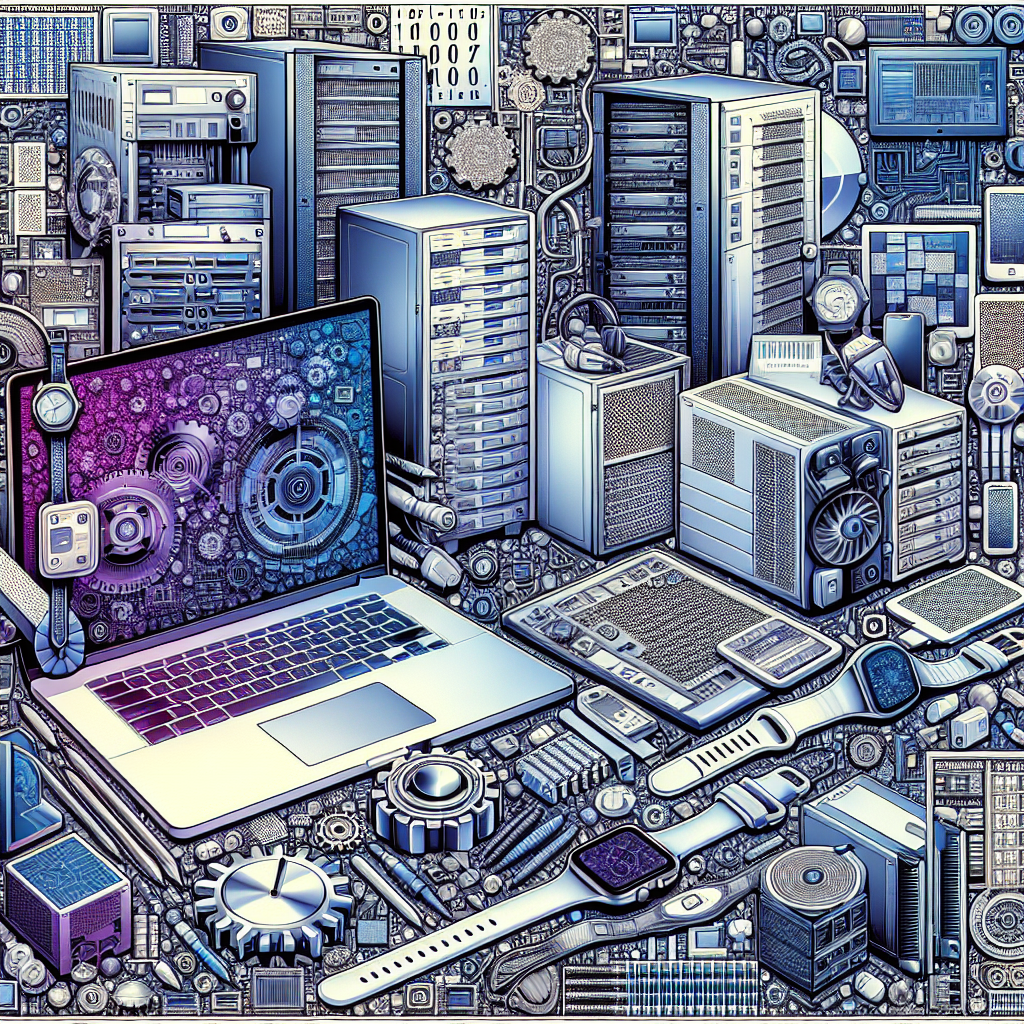The Tech World's Year-End Stupor: A Zesty Reflection on the Industry's Pulse
The close of the year often brings a collective sigh of relief—a chance to wind down, reflect, and perhaps even nurse the proverbial hangover from the festive blitz. In the tech world, this period of repose, now colloquially dubbed as "dead week," is not just a literal quiet but a metaphorical pause, one where emails go unanswered and business news trickles to a stop. Yet, even within this annual lull, ripples in the vast tech pond hint at changes, shakeups, and the subtle undercurrents of tomorrow.
A Screen Evolution: Apple's OLED Odyssey
It's no secret that the tech giant Apple has a penchant for keeping its ear close to the ground, monitoring the fast-paced step of its rivals. In a move that surprises no one yet delights the screen aficionados, whispers of Apple’s transition to OLED displays for its iPads and MacBooks resonate through the corridors of speculation. This pivot mirrors a broader industry trend, where the rich, vibrant hues of OLED have become a standard—a rite of passage for modern devices.
Yet, the idea of a foldable iPad or iPhone emerges as a quizzical conundrum. Who, indeed, is clamoring for these contorted contraptions? Are they a true innovation or merely a nod to a niche audience's whims? Moreover, as companies flaunt the prowess of printing OLED screens, one ponders the environmental dichotomy of such disposable tech: convenient for consumers, perhaps, but at what ecological cost?
Toshiba's Tumble: A Hard Drive Down Memory Lane
With a somber note, we mark the delisting of Toshiba after a robust 74-year tenure. The division that crafted mechanical hard drives now faces an uncertain future amid a declining market. The storied firm hopes to realign its focus, possibly toward enterprise software solutions—a pivot from the exquisite craftsmanship of their mechanical drives, which stand as testaments to technological prowess.
Xbox Shuffles the Deck
The tech world is no stranger to post-merger turbulence, and Microsoft’s Xbox division is the latest to shuffle its leadership deck. The departure of prominent figures such as Bobby Kotick post-Activision merger signals a perhaps necessary cleansing—an attempt to scrub away the stains of controversy and start anew.
A Taste of Tomorrow: The Intriguingly Intertwined Tech Ecosystem
The landscape of tech is ever-evolving, with stories that range from the intriguing to the outright bizarre—each a testament to innovation's relentless march. Imagine a future where the wares hawked from our television screens are but a tap away, thanks to integrated nearfield contact readers. Or consider virtual reality's newfound obsession with tongue tracking, which might just be a momentary fad or a glimpse into a strange, sensor-laden future.
The VR industry braces itself, forecasting a dip in sales until 2026—teasing a future where perhaps, as we reckon with a world unshackled from internal combustion engines, we may also find ourselves inhabiting digital sanctuaries more frequently, escaping to reminisce about a society that once buzzed with tangible experiences.
The Legal Labyrinth: From Internet Archive to Tik Tok's Tussles
As the sun sets on 2023, the legal battles in the tech realm cast long shadows. The Internet Archive faces its own David versus Goliath skirmish, championing the right to digital lending against an onslaught of publishers who view the practice as an affront to their copyrights. Meanwhile, Tik Tok navigates accusations of allowing underage users, bending its own rules to accommodate the immense traffic they drive.
In Conclusion: A World in Transition
The tech world's year-end slumber is both a reflection of exhaustion and anticipation. The industry, like a dormant beast, lies in wait—for the CES extravaganza, for the next disruptor, for the push that moves the needle forward. As we leave behind the old year and step into a fresh calendar brimming with possibilities, we can only hope that the stories that unfold will lead us to a future where innovation dances hand in hand with responsibility.
Related News
- A Brave New Year: The Intricacies of Technology in 2024
- The Tech Tumble: A Zesty Dive into the Latest Industry Shakeups
- The Tech Merge Madness and the Quirky Peripherals of Our Time
- The Corporate Carousel: Navigating Job Cuts, AI Takeovers, and the Evolving Tech Landscape
- Navigating the Turbulent Digital Seas: A Dissection of the Latest Tech Tempest
